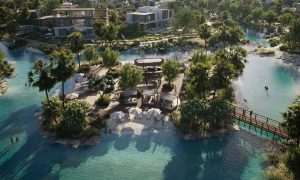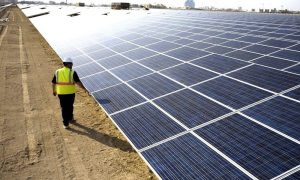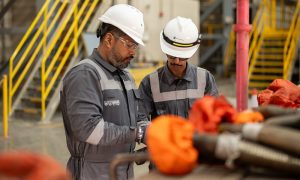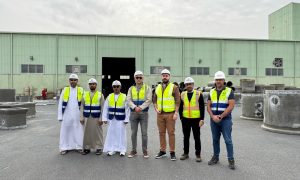Saudi Arabia signs $1.8bn BOT contract to develop Dammam port
Virtual signing seals agreement between Saudi Ports Authority and SGP for modernisation of the port and operating container terminals

The Saudi Ports Authority (Mawani) and Saudi Global Ports (SGP) have signed a new Build, Operate and Transfer (BOT) agreement with investments exceeding $1.8bn to develop and operate container terminals at the King Abdulaziz Port in Dammam.
The contract, which was signed in a virtual ceremony yesterday, is for a period of 30 years and was signed by Saleh Al-Jasser, Saudi minister of transport and chairman of Mawani; Khaw Boon Wan, coordinating minister for Infrastructure and minister for transport, Singapore; Saad bin Alkhalb, president of Mawani; and Abdullah Al-Zamil, chairman of SGP.
A statement from Mawani said the BOT agreement represents a major step towards achieving the strategic objectives and development plan of the authority by conceding some of its services in partnership with the Saudi Ministry of Transport and with the support of the National Centre for Privatisation.
Mawani added that the agreement activates the MoUs signed in the presence of Saudi Crown Prince and deputy prime minister Prince Mohammed bin Salman bin Abdul Aziz during the inauguration of the National Industrial Development and Logistics Program (NIDLP).
Upon assuming the responsibility for managing both container terminals, SGP will embark on a development and modernisation programme to transform King Abdulaziz Port into a mega container hub and increase the port’s capacity to an estimated annual handling capacity of 7.5 million twenty-foot equivalent units (TEU) when the planned expansion works are completed.
At a total estimated investment of more than $1.8bn, it will provide more than 4,000 job opportunities in the ports and logistics sector.
Under the agreement, SGP will invest in and develop key infrastructure such as berths and container handling equipment and will more than double the existing container handling capacity of King Abdulaziz Port. The investments will focus on environmentally friendly and technologically sophisticated systems, including the adoption of automation to develop a modern Saudi workforce.
Saleh Al-Jasser said: “The continuous developments in Saudi ports come in line with the national efforts to achieve goals and pillars of our country’s ambitious vision to promote sustainable economic development and raise competitiveness”
Al-Jasser explained that the agreement enhances logistics, raises the reliability of supply chains, supports local and international trade and contributes to raising the rank of the Kingdom in the logistics performance index to among the world’s top 25 countries.
This agreement is also expected to attract new investments to the Saudi economy, support local content and national industries and increase exports and imports that contribute to creating promising investment opportunities.
Alkhalb said the new BOT agreement is a continuation of the agreements concluded by Mawani last December to develop container terminals at Jeddah Islamic Port with investments exceeding $2.4bn. The total expected investment in the Jeddah and Dammam ports combined is approximately $4.5bn.
“These new agreements will contribute mainly to developing berths, increasing the capacity of container terminals in the King Abdulaziz Port by more than 120%, and providing integrated solutions to operate container terminals. They achieve technological and information integration and automation of operating systems and set environmentally friendly operating practices, which contribute to strengthening their leading role in the global maritime traffic and supporting import and export operations,” Alkhalb added.
King Abdulaziz Port is the largest Saudi port on the Arabian Gulf. Spread over 19 square kilometres, it has 43 berths and has a 105 million tons cargo handling capacity. With a variety of facilities, such as container, refrigerated cargo and general cargo terminals, cement plants, bulk grain and iron ore handling terminal, naval vessel manufacturing and ship repair areas, as well as oil & gas facilities, it is also linked with the Riyadh Dry Port by railway, which helps goods from all over the world enter the Eastern and Central Regions of Saudi Arabia.

























